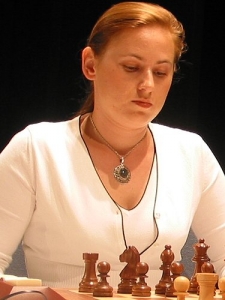For the past two and a half years, my son and I have been studying Taekwondo. At a class a few days ago, some of us were practicing a difficult kick, and a newer student was finding she had to go through the kick very slowly.
“It took me about two years to learn that kick,” said a third student we were working with, by way of encouragement.
That surprised me at first. It’s just one kick! Admittedly, it wasn’t nearly the only thing we had been practicing, and it was a kick that involved spinning in mid-air, but two years seemed like a very long time. Yet when I thought about it, I realized it had taken me a year and a half or two years too, and that was with taking extra time after class some days specifically to practice it.
 Becoming excellent at something really does take a long time. What’s more interesting is that, in a manner of speaking, that’s all it takes. In other words, that old saw “You can do anything you set your mind to” appears to have a lot of truth to it, truth backed by fistfuls of scientific studies.
Becoming excellent at something really does take a long time. What’s more interesting is that, in a manner of speaking, that’s all it takes. In other words, that old saw “You can do anything you set your mind to” appears to have a lot of truth to it, truth backed by fistfuls of scientific studies.
“What about talent?” you might ask. My response to that would have to be: “It doesn’t seem to exist.”
“But Mozart … Tiger Woods!” you say.
“Both were taught intensively in their fields by their fathers practically from infancy,” I’d tell you, “and both their fathers were teachers with exceptional credentials. By the time each was five years old, they were so far ahead of their peers, the world was their oyster.” Practice may not make perfect, but it does make darn good.
Skeptical? László Polgár knew a lot of people who were skeptical when he claimed that you could raise children who were prodigies at almost anything, if you cared to go about it the right way. To prove it, he married a woman willing to do the experiment with him, fathered three daughters, and brought them all up to be world-class chess masters. Two of the girls stuck with chess long enough to become grandmasters and (at different times) world champions. László himself is an unexceptional chess player, but he has studied chess thoroughly enough to have been a very effective teacher for his daughters.
 All of this about talent that I’m casually summing up in a pretend conversation comes from the arguments found (among other places) in two recent, very well-written books. Malcolm Gladwell’s Outliers does a lot to explain how the very best people in every field–music, chess, sports, business, and so on–all seem to have gotten their skills by working very hard for a long time. In fact, Gladwell will tell you how long that period of time is: 10,000 hours. It takes about 10,000 hours of practice in practically anything to become world-class at it.
All of this about talent that I’m casually summing up in a pretend conversation comes from the arguments found (among other places) in two recent, very well-written books. Malcolm Gladwell’s Outliers does a lot to explain how the very best people in every field–music, chess, sports, business, and so on–all seem to have gotten their skills by working very hard for a long time. In fact, Gladwell will tell you how long that period of time is: 10,000 hours. It takes about 10,000 hours of practice in practically anything to become world-class at it.
In his book Talent is Overrated, Geoff Colvin dives into the subject further, and points out that the quality of practice makes a huge difference as well. The very best violinists in the world now are much better than the very best violinists in the world 200 years ago, and it’s not just because there are more people playing the violin: it’s also that today’s violinists have better learning methods, recordings, and other resources contemporaries of Mozart or Beethoven never had.
But again, what about talent? There are just people who are really good at things from a young age, naturally, so what about them?
Actually, such people don’t seem to exist. Find anyone who’s exceptional at practically anything, dig into their past, and you’ll find a whole lot of practice–much more practice than people who aren’t as good as they are.
Not to say that genetics count for nothing. Genetics determine a lot about a person’s body, which can influence which athletic activities, for instance, they might be good at. Genetics also seems to determine a range of potential intelligence, and in turn intelligence has some influence over what a person can get good at–but only in that a person seems to need a certain minimal level of intelligence to be able to do well at certain activities, with more intelligence not corresponding to more success. For instance, a decades-long study that began by identifying a number of child geniuses found that these children didn’t fare any better than the average graduate student in life. Intelligence certainly counts for something, but it doesn’t make for automatic success.
I can understand if you don’t believe this, or if you have big reservations. If so, it might be worthwhile reading Colvin’s or Gladwell’s book and seeing if the evidence they present there doesn’t make a better case than I can in this short blog entry. The idea that people are born with special talents is a very strong one in our culture, and when we see someone who does well at something, we tend to assume automatically that it’s because of inborn talent, then take that success as proof that inborn talent exists.
And what does all this have to do with self-motivation? Well, it is a bit of a tangent, but it does relate to two key elements of self-motivation: goals and belief that you can accomplish them.
In terms of goals, it may help to realize that if you have a goal of being very, very good at something, it’s almost certainly possible to reach that goal–but it will take a lot of time and effort, so you had better enjoy whatever it is you plan to be doing. In some cases, others may have an enormous head start on you. For instance, if you start playing violin at age 30, it’s not likely that you’ll ever catch up with 30-year-olds who have been playing violin day in and day out since age 5–so you can become an excellent violinist even starting at age 30, but there’s little possibility you’ll become one of the best in the world.
In terms of belief, it can be discouraging sometimes to slowly move through a kick that feels awkward and clumsy to you when other people are spinning through the air and delivering it seemingly without effort. What Gladwell and Colvin and the researchers on whose work they’ve based their books have to tell us is that in time, that kick will come. Practically anyone can fly through the air, spinning, if they’re willing to put in the time.
Takeaways:
- Only a few inborn traits, like intelligence and body size, affect what we can or can’t become great at
- Almost all exceptional skill comes from many, many hours of practice
- No, seriously: it’s true
Pictures above: Wolfgang Mozart, Judit Polgár
Like this:
Like Loading...



 Becoming excellent at something really does take a long time. What’s more interesting is that, in a manner of speaking, that’s all it takes. In other words, that old saw “You can do anything you set your mind to” appears to have a lot of truth to it, truth backed by fistfuls of scientific studies.
Becoming excellent at something really does take a long time. What’s more interesting is that, in a manner of speaking, that’s all it takes. In other words, that old saw “You can do anything you set your mind to” appears to have a lot of truth to it, truth backed by fistfuls of scientific studies. All of this about talent that I’m casually summing up in a pretend conversation comes from the arguments found (among other places) in two recent, very well-written books. Malcolm Gladwell’s Outliers does a lot to explain how the very best people in every field–music, chess, sports, business, and so on–all seem to have gotten their skills by working very hard for a long time. In fact, Gladwell will tell you how long that period of time is: 10,000 hours. It takes about 10,000 hours of practice in practically anything to become world-class at it.
All of this about talent that I’m casually summing up in a pretend conversation comes from the arguments found (among other places) in two recent, very well-written books. Malcolm Gladwell’s Outliers does a lot to explain how the very best people in every field–music, chess, sports, business, and so on–all seem to have gotten their skills by working very hard for a long time. In fact, Gladwell will tell you how long that period of time is: 10,000 hours. It takes about 10,000 hours of practice in practically anything to become world-class at it.